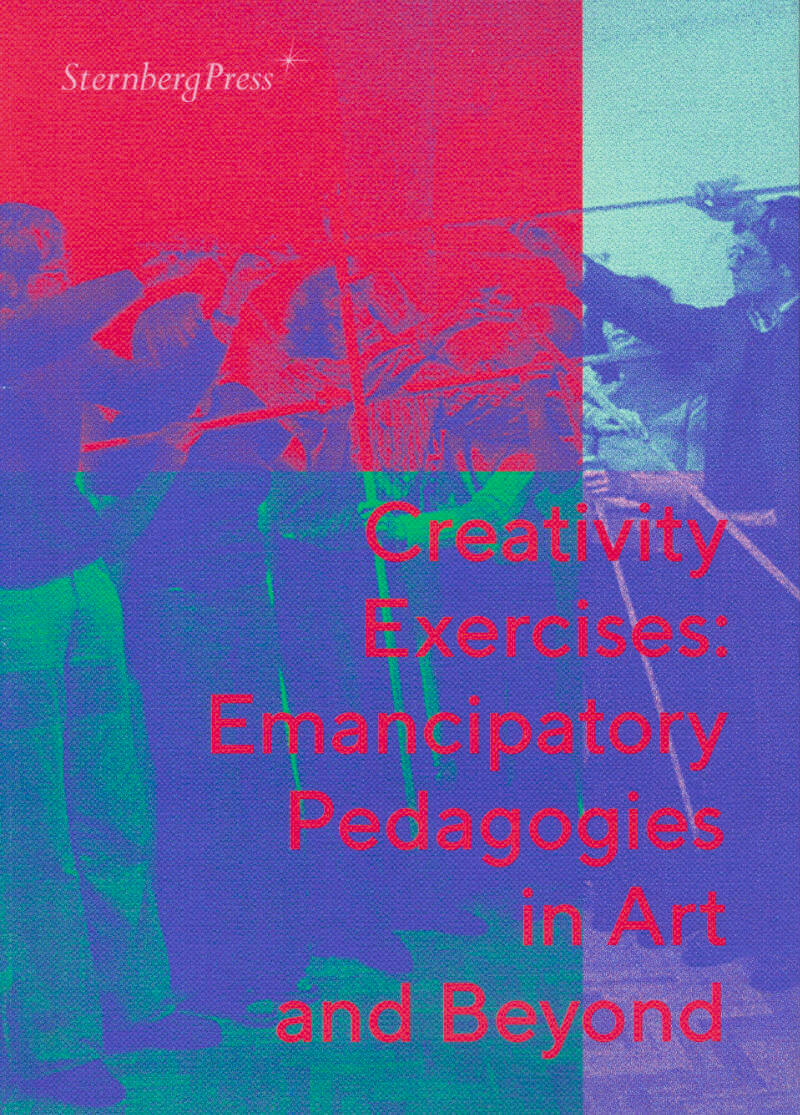Marion von Osten
Marion von Osten

Material Marion von Osten 1 – MoneyNations
The first volume in a series devoted to Marion von Osten's archives, around the MoneyNations project, transversing between art, theory, and activism.
MoneyNations was an exhibition, a webzine, a radio, a conference, a video archive, a printed publication, an infrastructure, a counterpublic, an ongoing discussion, a transnational network of friends. Initiated by Marion von Osten as curator at the Shedhalle Zurich, the project evolved from an urgency to act against the hegemonic forces of "the West" within the radically changing condition of post-Cold War Europe. MoneyNations addressed—and intervened in—the interrelatedness between racist border policies and media representations, exploitative economic relations, and identity-forming processes. The applied methods of critique and organizing, transversing between art, theory, and activism, are made accessible in this volume through images, correspondences, and other ephemera, revealing their political potential for the present. It is contextualized by a conversation between Sezgin Boynik (Rab-Rab Press), Ferdiansyah Thajib (KUNCI Study Forum & Collective), Eleanor Ivory Weber, Camila Willis (Divided Press) and the editors.
The Material Marion von Osten series periodically publishes selected archival documents from von Osten's projects and contextualizes them with new contributions. Correspondences, drafts, scripts, photographs, videos and printed matter serve as the starting point for the publication series which maps the complexity of Marion von Osten's transversal cultural production in its details and specifics.
The artist, curator, researcher, and educator Marion von Osten (1963-2020) lived in Berlin since the early 1990s. Her always collaborative approach manifested in exhibitions, conferences, installations, as well as films, discussions, texts, teachings, or self-published journals. Her projects were all intertwined and carried by her specific way of working: through artistic research and feminist organizing, transnational and committed to the project of decolonization. Amongst her works are the international exhibition series bauhaus imaginista (2018-2020), Viet Nam Discourse (2016-2018) at Tensta Konsthall, Project Migration (2002-2006) in Cologne, and Sex & Space (1996) at Shedhalle Zurich. As collective infrastructures, her collaborations included Labor k3000, kleines postfordistisches Drama (Minor Postfordist Drama, kpD) and the CPKC Center for Postcolonial Knowledge and Culture.
Edited by Lucie Kolb, Jonas von Lenthe, Max Stocklosa.
Conversation between Sezgin Boynik, Ferdiansyah Thajib, Eleanor Ivory Weber, Camila Willis and the editors.
And more

Archives on Show – Revoicing, Shapeshifting, Displacing – A Curatorial Glossary
Archives on Show brings the potential of reformulating the social and political relevance of archives by curatorial means into focus.
Based on the specific properties, faculties and methods of curation, the volume highlights those techniques and strategies that deal with archives not only to make their genesis and history apparent but also to open them up for the future. The 22 different ways of dealing with archives testify to the curatorial participation in (re)shaping the archival logic, structures and conditions. As process-oriented, collective and relational modes of producing meaning, these curatorial practices allow for the alteration, reconfiguration and mobilization of the laws, norms and narratives that the archive preserves as preconditions of its power.
The contributions to this volume by artists, curators and theorists demonstrate approaches that curatorially insist on building other relations between human and non-human archival participants. Each is using the book to create a curatorial constellation that generates and forms new connections between different times and spaces, narratives, disciplines and discourses. Configured as a glossary, the positions assembled in this volume exemplify curatorial methods with which to treat the archive as site and tool of collective, ongoing negotiations over its potential societal role and function.
Contributions by Heba Y. Amin, Talal Afifi, Eiman Hussein, Tamer El Said, Stefanie Schulte, Strathaus, Haytham El Wardany, Julie Ault, Kader Attia, Roger M. Buergel, Sophia Prinz, Yael Bartana, Rosi Braidotti, Kirsten Cooke, Ann Harezlak, Alice Creischer, Andreas Siekmann, Octavian Esanu, Megan Hoetger, Carlos Kong, Iman Issa, Kayfa ta, Kapwani Kiwanga, Doreen Mende, Stefan Nowotny, Marion von Osten, pad.ma, Abdias Nascimento, Eran Schaerf, Magdalena Tyżlik-Carver, Françoise Vergès.

Creativity Exercises
Franciska Zólyom, Zsuzsa László and 1 more
The book contextualizes the Creativity Exercises—an amateur art course led by neo-avant-garde artists Miklós Erdély and Dóra Maurer in Budapest from 1975 to 1977—within the postwar intellectual networks that connected artists, architects, educators, sociologists and other socially engaged professionals, fostering the exchange of ideas and concepts and making connections between different fields of knowledge.
How do people learn, what do they know, and how does it influence their personality, their behavior and their position in society? These questions were the focus of the research project and exhibition series entitled “Creativity Exercises” between 2014 and 2016, which displayed historical and contemporary art projects experimenting with alternative forms of learning, spanning three exhibition stations: Galerie für Zeitgenössische Kunst Leipzig, tranzit.hu in Budapest, and the Museum of Modern Art in Warsaw.
The first part of the publication consists of historical texts translated into English for the first time, including the exercise descriptions that functioned as the curriculum for the Creativity Exercises, studies written on the methods employed in the Creativity Exercises course, and parallel models for progressive pedagogies and art education. In the second part of the book, newly commissioned essays offer historical and transnational context for the “case study” of the Creativity Exercises course. The impact that such “creativity exercises” had on aesthetic, educational and institutional concepts, and the impulses for participation, co-creation, knowledge production and exchange that they continue to give—even beyond the realm of art—are the central themes of the book.
Texts by Ferenc Mérei & Tamás St. Auby, László Beke, Ildikó Enyedi, Miklós Erdély, Éva Forgács, Janna Graham, Dóra Hegyi, Sándor Hornyik, Zsolt K. Horváth, Emese Kürti, Zsuzsa László, Dóra Maurer, Marion von Osten, Axel Wieder.